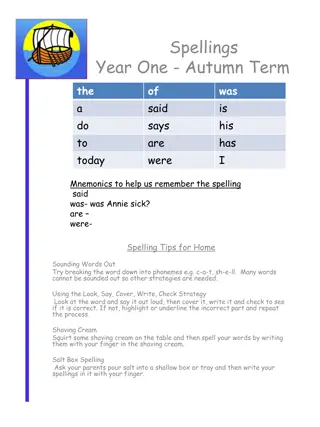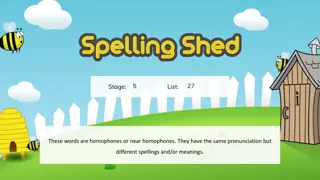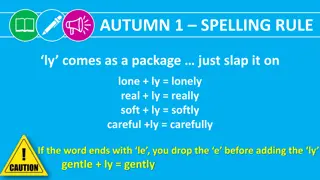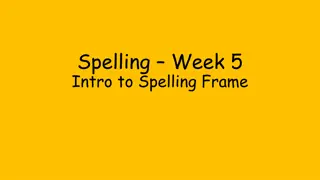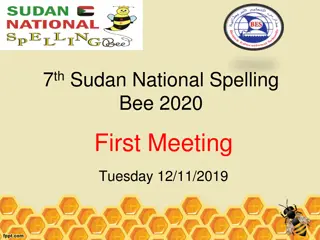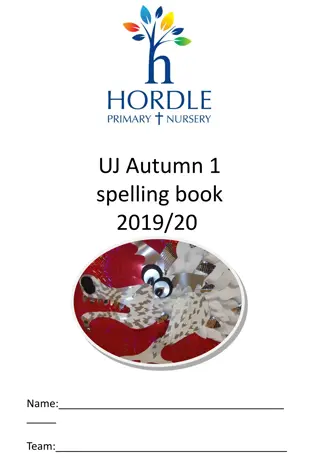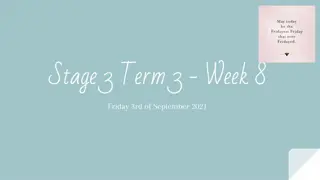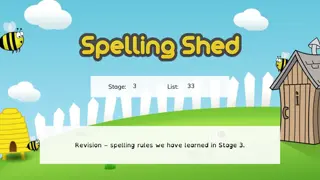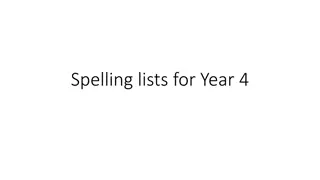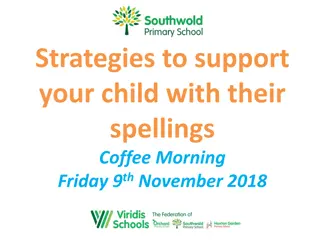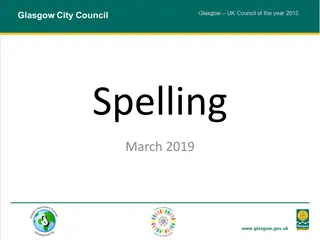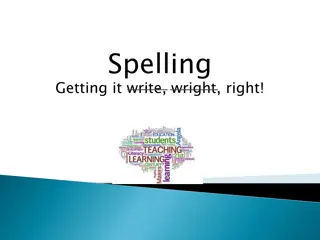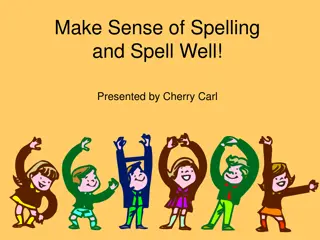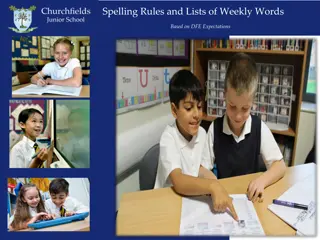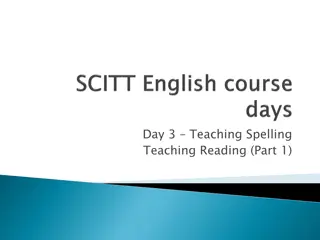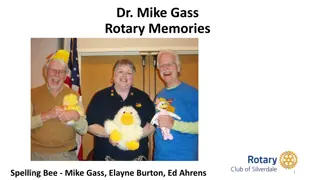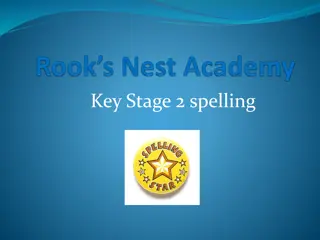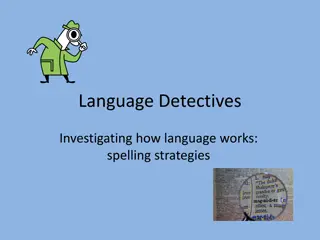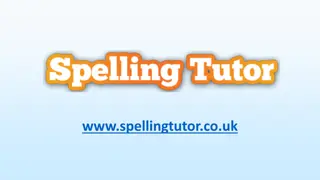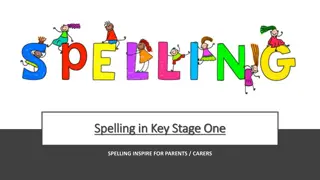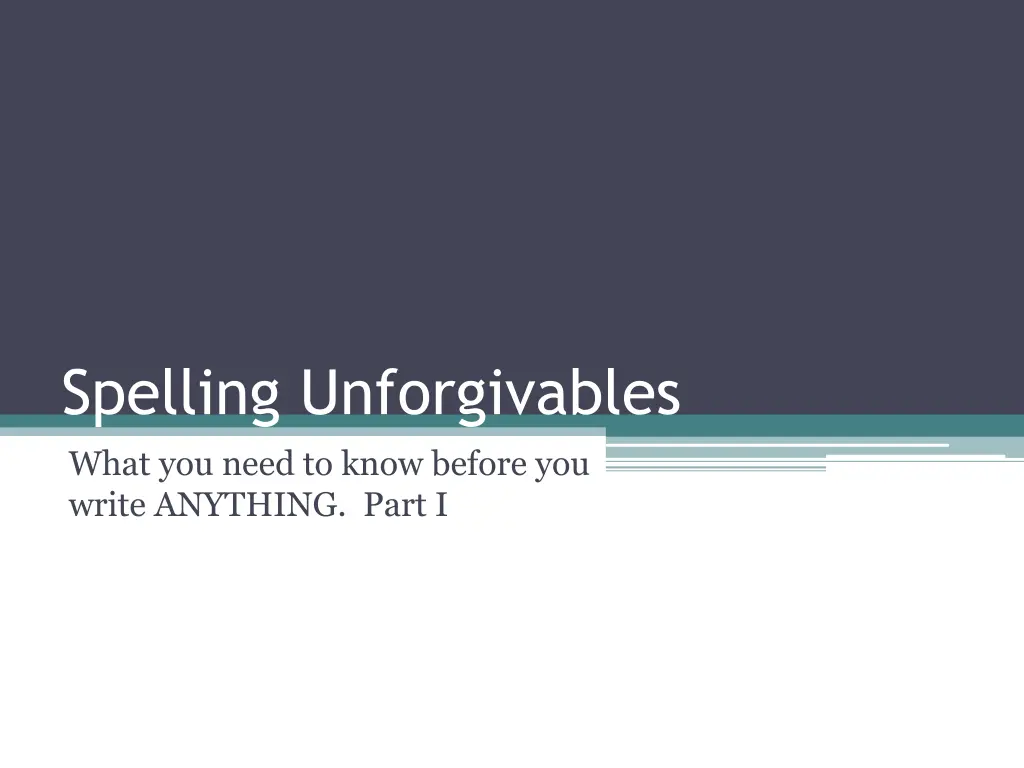
Essential Spelling Tips for Better Writing
Master commonly confused words with this helpful guide covering accept vs. except, desert vs. dessert, here vs. hear, hole vs. whole, its vs. it’s, no vs. know, a lot, about, and aloud vs. allowed.
Download Presentation

Please find below an Image/Link to download the presentation.
The content on the website is provided AS IS for your information and personal use only. It may not be sold, licensed, or shared on other websites without obtaining consent from the author. If you encounter any issues during the download, it is possible that the publisher has removed the file from their server.
You are allowed to download the files provided on this website for personal or commercial use, subject to the condition that they are used lawfully. All files are the property of their respective owners.
The content on the website is provided AS IS for your information and personal use only. It may not be sold, licensed, or shared on other websites without obtaining consent from the author.
E N D
Presentation Transcript
Spelling Unforgivables What you need to know before you write ANYTHING. Part I
Accept and Except Accept: to agree to, acknowledge, or understand I happily accept this award! Except: to exclude or to hold separate Hint: the x is like crossing something out Everyone except Dana wore sneakers today.
Desert and Dessert Desert: a barron region The desert was hot and dry. Dessert: a yummy treat Hint: ss means more dessert for you I cannot wait to eat banana cream pie for dessert.
Here and Hear Here: Where you are; now Hint: here and there are both locations Mrs. Ritt s desk is right here. Hear: listen to Hint: hear has the word ear in it I hope you can hear my voice in the back of the room.
Hole and Whole Hole: gap, opening, puncture Be careful not to step in the hole! Whole: entire, complete, total Mrs. Ritt can eat a whole bag of popcorn by herself.
Its and Its Its: possessive pronoun without an apostrophe (its, his, hers, my, ours, theirs, yours) Let s give the dog its bath. Its tail is wagging! It s: short for it is or it has It s time to catch that fly! (it is) It s been nice talking with you. (it has)
No and Know No: rejection, refusal, veto No, you cannot eat my dessert! Know: recognize, identify, be acquainted with I know your older sister very well.
A lot A lot: many, a large number, a great deal Hint: a lot has two words and that s a lot for so few letters This weekend, Mrs. Ritt pulled a lot of weeds in her garden.
About About: approximately, almost, roughly; concerning, on the subject of My library has about 400 books in it. I would like to talk to you about the math test.
Aloud and Allowed Aloud: out loud, noisily Mrs. Ritt reads aloud to us each day. Allowed: permitted, acceptable, tolerated We are allowed to sit wherever we want during independent work.
All Right Alright is NOT A WORD! But surprisingly, you will see it used in books from time to time! All Right: all correct Mrs. Ritt said we got the answers all right!
Always Always: forever, at all time, constantly Mrs. Ritt always enjoys chocolate as a dessert.
Beautiful Beautiful: fine-looking, attractive, handsome Beauty is the name of the beautiful girl in Beauty and the Beast.
Because Because: since, as, for the reason that Mrs. Ritt was not in school because she had a meeting.
Beginning Beginning: start, opening, creation of At the beginning of the school year, we had a lot of rules to remember.
Different and Difference Different: unlike, special, diverse The house looked a lot different after the storm. Difference: distinction, variation, diversity What s the difference between navy and pale blue?
Does and Doesnt Does: do How does that idea sound to you? Doesn t: Short for does not Doesn t she look like someone famous?
Enough Enough: an adequate or sufficient amount I ve eaten enough, thank you!
Friend Friend: pal, buddy, associate, comrade My friend and I walked to school together.
Now Now: at this time, this moment, currently Now you may begin your assignment.
Spelling Unforgivables Part II
Morning and Mourning Morning: dawn, daybreak, sunrise This morning, Mrs. Ritt went for a run. Mourning: grief, sorrow, sadness I was in mourning after my cat died.
Hour and Our Hour: 60 minutes You have an hour to complete this assignment. Our: possessive for us I hope our project is a success.
Principle and Principal Principle: code, standard, belief To treat others the way you would want to be treated is a good principle to live by. Principal: chief Hint: Principal has the word pal in it Mrs. Klimpl is the principal of our school.
Peace and Piece Peace: harmony, calm, tranquility, quiet We all enjoyed the peace after a hectic school week. Piece: part, section, portion Hint: Piece has the word pie in it Mrs. Ritt ate a piece of pizza for lunch.
There, Their, and Theyre There: near, here Hint: There has the word here in it You will find scissors over there. Their: possessive for them Their house is on the corner. They re: short for they are They re going to the movies after school.
Your and Youre Your: possessive for you Your puppy is so adorable! You re: short for you are I hope you re enjoying this nice day.
Two, To, and Too Two: one plus one I have two bunnies. To: on the way to, toward Mrs. Ritt drives less then one mile to school. Too: also, as well, besides, in additi0n Hint: too has two Os (extra) I d like to read that book too.
Threw and Through Threw: past tense for throw Mr. Ritt threw the football but Mrs. Ritt intercepted it. Through: from beginning to end, in the course of We moved quickly and quietly through the hallway.
Buy, By, Bye Buy: to purchase Mrs. Ritt would like to buy an air conditioner for her classroom. By: near, with, in through, as a result of Please sit by the fan so you can stay cool. Bye: short for good-bye, farewell Bye Charlie, see you later.
Though Though: while, however, despite the fact, although Mrs. Ritt likes football, though she likes ice hockey more.
Were, Were, and Where Were: to have been, past tense of are We were at the baseball field until dark. We re: short for we are We re going to take a break during the seventh inning stretch. Where: someplace, here, there Where can I find a really good bakery?
Of and Off Of: indicates distance or separation We are within a mile of downtown Doylestown. Off: so as to be no longer Turn the lights off when you leave the classroom.
Once and Often Once: one time, a long time ago I once was afraid of the dark. Often: a lot, frequently, regularly I walk into town often.
Separate Separate: divide, disconnect, undo, take apart Mrs. Ritt kept her vegetables separate from her chicken. Mrs. Ritt had to separate two students who were arguing.
Could Could: past tense of can, possibly Could you please hand me those papers?
Hurray! You are now a spelling unforgivable expert! Your writing will be impeccable!

